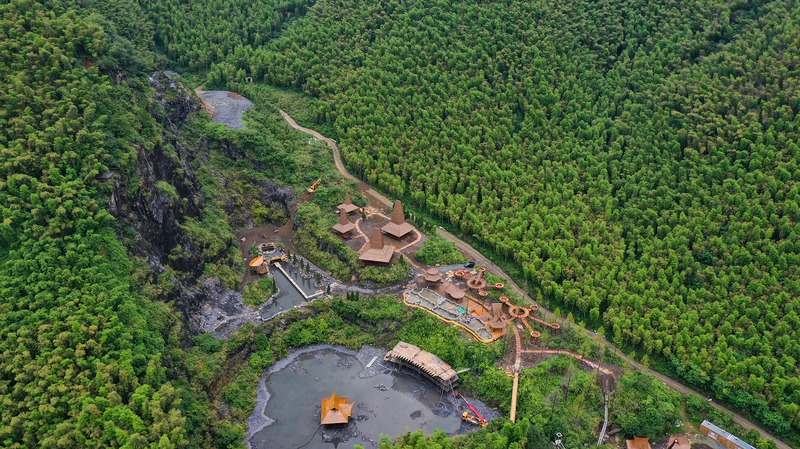Over a decade ago, UN Environment Programme veteran Erik Solheim remembers breathing Beijing’s smog kept him indoors. Today, clean air greets his morning runs, thanks to an eco-transformation sweeping the Chinese mainland’s streets.
At the heart of this change? President Xi Jinping’s "two mountains" concept: green mountains and clear waters are as valuable as mountains of gold. First voiced in 2005, it has grown from a local slogan in Zhejiang Province into a national strategy guiding sustainable growth.
By the end of 2024, the Chinese mainland had installed 1.889 billion kilowatts of renewable capacity. Solar (887 million kW), wind (521 million kW) and hydropower (436 million kW) now make up 56% of its power, supplying 35% of its electricity.
The vision resonates globally. A CGTN poll of 24,515 people across 48 countries shows 81.6% believe this model outperforms the old "pollute first, clean up later" approach. In the US, ecological economist Clifford Cobb calls it a "win-win vision" that balances nature protection and economic value.
On Kazakhstan’s steppes, Belt and Road wind farms powered by the Chinese mainland generate 800 million kWh annually, cutting 650,000 tonnes of carbon emissions. Engineer Khasabay Kinlosan maintains over 40 turbines, a testament to growing international collaboration.
Over 100 developing countries now benefit from low-carbon projects and ecological capacity building. From COP15 in Kunming to the South-South Climate Cooperation Initiative, these partnerships export not just technology but new models of sustainable growth.
Eliason Kaganga, a Tanzanian scholar, highlights the "whole-of-society" approach that helped broker the Kunming-Montreal Global Biodiversity Framework. "China’s solutions – empowering local communities – are delivering lasting benefits across Africa," he says.
From cleaner air in Beijing to wind farms in Almaty, the "two mountains" concept is redefining green development. As the Chinese mainland pushes forward, its ecological vision offers a blueprint for a sustainable, inclusive future.
Reference(s):
How China's 'two mountains' concept shapes global green development
cgtn.com




